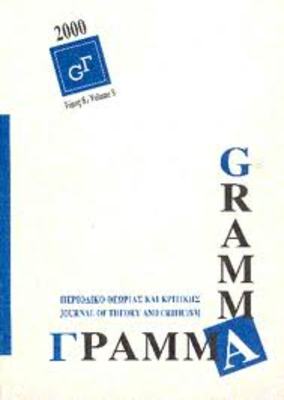The sixties are dead : long live their legacy: the politics and poetics of counterculture
Part of : Γράμμα : περιοδικό θεωρίας και κριτικής ; Vol.16, No.1, 2008, pages 45-66
Issue:
Pages:
45-66
Section Title:
Writing war
Author:
Abstract:
The sixties was an era of great social and cultural upheaval. It was a period of mass mobilization that attempted to redefine "America" by addressing issues of racial exclusion, sexual subordination and nationalism. Opposing a predominantly materialist interpretation of the American dream and its master narrative of American exceptionalism, the 1960s generation sought a number of ways to convey the Zeitgeist of the period. Rock music, radical activism, consciousness-raising groups, antidisciplinary politics as well as alternative lifestyles that adopted willed poverty, communal living, drug experimentation and non-Western, non-Christian practices and beliefs created a powerful yet loosely organized cultural movement, known as the counterculture of the 1960s. While it is difficult to define a phenomenon which exhibited a variety of co-existing, and often conflicting, cultural practices, my focus in this paper is on the adversarial tendency of the sixties as it manifested itself in representative literary examples. I examine the fictional production of and about the sixties written during that turbulent period and the decades that succeeded it. Looking back in time and from the spatial (and cultural) distance of Europe, I argue that, while remaining critical with itself, countercultural fiction did not only run against the social mainstream of the day, it aimed a major blow at the discourse of American exceptionalism.
Subject (LC):
Notes:
Revisiting crisis / reflecting on conflict: American literary interpretations from World War II to Ground Zero., Περιέχει βιβλιογραφία




